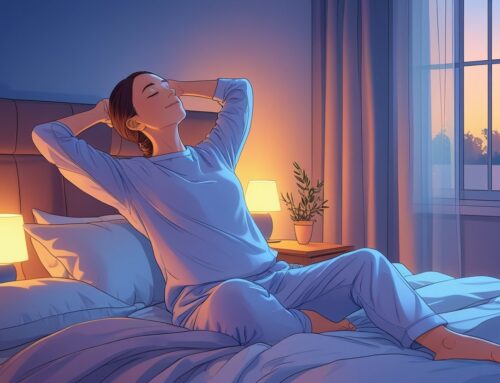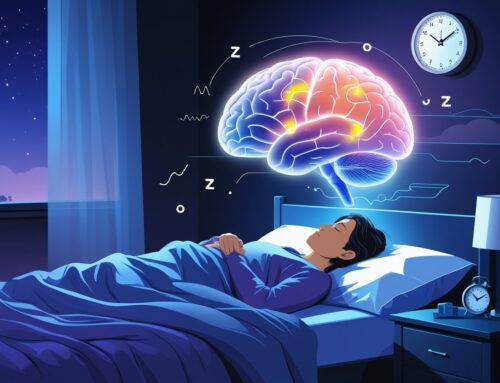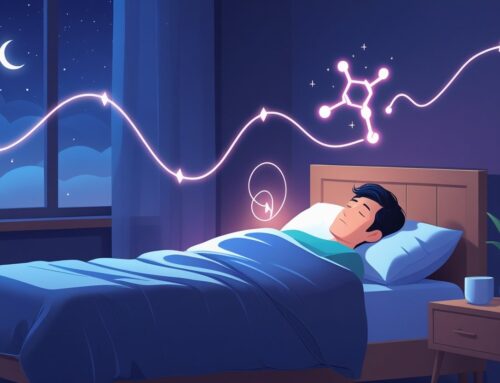Overall, adults need 7-9 hours of sleep each night to be healthy and function properly. While adults need around 7 hours of sleep and that generally stays true for most of us in maintaining physical and mental health, sleep needs vary based on different factors including age, lifestyle habits, and health status. Not getting enough sleep consistently can lead to problems including fewer hours of alertness, increased fatigue, and decreased ability to focus.
Knowing how much sleep you need can enhance your daily life. Some adults might feel rested after 7 hours of sleep, while others might need close to 9 hours. By knowing how much sleep is required, people can become aware when they are not getting enough sleep, and take measures to change their sleeping habits.
Key Takeaways
- Most adults require 7 to 9 hours of sleep each night.
- Sleep needs vary based on personal and health factors.
- Consistently getting enough sleep supports overall well-being.
- A supportive and comfortable mattress directly influences adults’ ability to achieve the recommended 7-9 hours of quality sleep by reducing discomfort and nighttime awakenings.

How Many Hours of Sleep Do Adults Need?
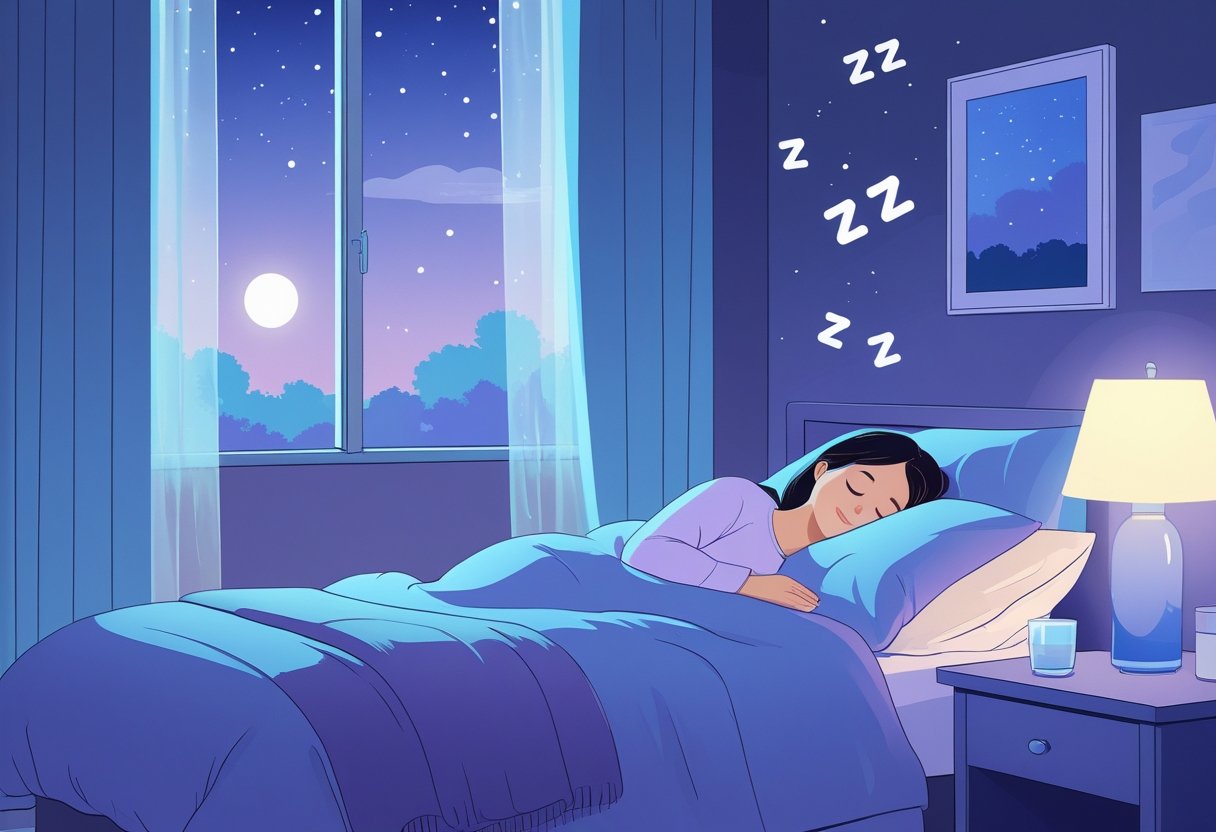
Adults need enough sleep to maintain good health, support memory, and stabilize energy levels throughout the day. Sleep requirements vary depending on age, lifestyle, and individual health. Recognizing these factors allows people to determine how much sleep they need.
Recommended Sleep for Adults
Most health experts agree that adults should sleep between 7 and 9 hours each night. This range generally applies to people aged 18 to 64. Adults over 65 typically need slightly less, about 7 to 8 hours per night. The Centers for Disease Control and Prevention (CDC) advises getting at least 7 hours of sleep to lower the risk of conditions such as heart disease and diabetes. Sleep quality matters as much as quantity. Both deep and REM sleep are essential in helping the body feel rested.
Sticking to a consistent sleep schedule and reaching enough deep sleep, about 1.5 to 2 hours per night, promotes recovery for both the brain and body. These recommendations are based on research exploring sleep’s effects on health and daily functioning.
Is 8 Hours of Sleep Enough?
Eight hours of sleep often fits within the recommended range and provides enough rest for many adults. Still, this number isn’t universal. Some people feel alert with 7 hours, while others require up to 9 hours to perform well throughout the day. What matters most is how someone feels after waking up. If a person logs 8 hours but still struggles with fatigue or focus, they may need more sleep or better-quality rest. Sleeping less than 7 hours regularly is associated with poor health outcomes.
Experts recommend watching for signs such as tiredness, mood swings, and trouble concentrating when deciding whether 8 hours is enough. Sleep needs may shift due to illness, physical activity, or stress. Harvard Health offers more insight into how sleep needs differ from person to person.
Factors Affecting Adult Sleep Needs
Several elements influence how much sleep adults require on any given night. Age plays a major role. Older adults often sleep more lightly, wake up more often, and rest for shorter periods overall.
Health concerns such as chronic illness, anxiety, or high stress levels can increase the body’s need for sleep. A demanding mental workload or regular physical activity may also raise sleep requirements for proper recovery. Lifestyle habits can interfere with sleep quality as well. Caffeine, screen time before bed, and irregular routines often reduce restfulness and increase the need for more sleep. Because of these variables, recommended ranges should serve as flexible guidelines rather than strict rules.
Differences in Adult Sleep Needs
Adults generally need between 7 and 9 hours of sleep daily, but this varies based on sex, individual traits, and natural sleep patterns. Men and women often face different sleep requirements and challenges. People also differ in how refreshed they feel after sleep. Sleep timing and quality influence daily energy and long-term health.
How Much Sleep Do Men Need?
Men usually require about 7 to 9 hours of sleep each night, aligning with the general adult recommendation. Some studies indicate men may need slightly less sleep than women on average. Several lifestyle factors, such as work stress and physical exertion, affect men’s sleep. They also face a higher risk of sleep disorders like sleep apnea, which compromises sleep quality regardless of total hours.
As men age, their sleep often becomes lighter and more fragmented. These changes suggest that sleep quantity alone does not fully reflect their overall rest needs.
How Much Sleep Do Women Need?
Women generally need sleep toward the higher end of the 7 to 9-hour range. This requirement may rise during pregnancy, menstruation, and menopause due to hormonal shifts. Many women report needing more rest than men and experience insomnia more frequently. However, when free from sleep disorders, women tend to enjoy deeper and more restorative sleep.
Hormonal cycles can interrupt women’s sleep. Additionally, greater caregiving responsibilities and social stress often lower the quality and quantity of rest they manage to get.
Individual Variations in Sleep
Not every adult fits the standard 7–9 hour guideline. Some feel completely rested with just 6 hours, while others require over 9. Genetics, health issues, and lifestyle routines all shape personal sleep needs. People who engage in frequent exercise or endure high levels of mental stress often need additional rest.
Some individuals function best as “short sleepers” with minimal sleep, while others thrive as “long sleepers” needing extended rest. Recognizing how sleep influences energy and health is essential for understanding personal needs.
Daily Sleep Patterns
Sleep quality depends not only on duration but also on timing. Work schedules, social routines, and age can shift daily sleep rhythms. Older adults often sleep in shorter spans and wake more frequently during the night. These patterns reduce sleep efficiency even when total hours appear adequate.
Napping and irregular sleep schedules may help some people make up for lost rest, although these habits can also interfere with nighttime sleep if poorly timed. Keeping a consistent sleep routine supports stronger daily performance.
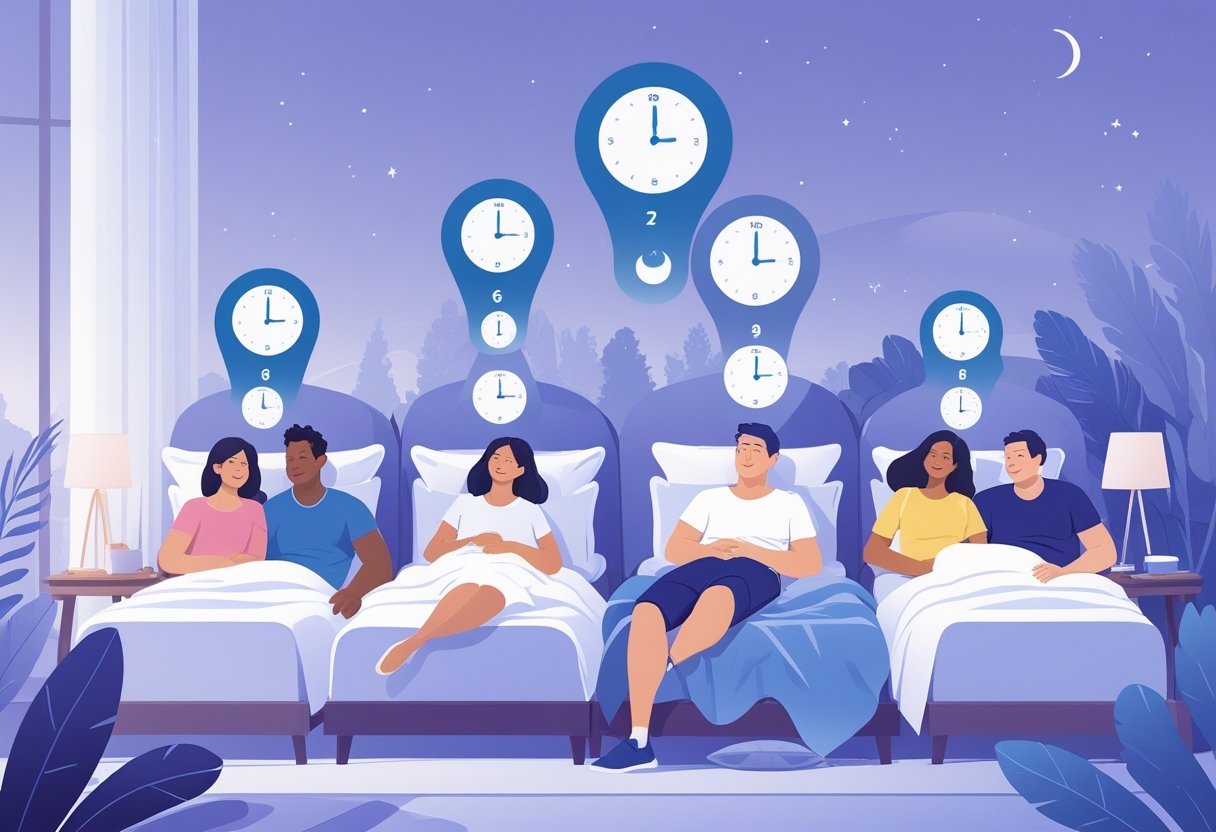
Consequences of Inadequate Sleep
Not getting enough sleep reduces how well the body and mind function. It disrupts focus, alters mood, and damages physical health. Consistent sleep loss also increases the risk of serious health problems over time.
Short-Term Effects on Health
When adults sleep less than the recommended 7 hours, they face immediate effects such as poor concentration and slower reaction times. This impairs daily task performance and raises the likelihood of accidents.
Sleep deprivation affects balance and coordination, which may lead to falls or injuries. It also weakens the immune system, making illness more likely. Mood disturbances like irritability and stress often follow a night of poor sleep. Missing sleep for even one night can cause headaches and daytime drowsiness. These symptoms intensify if poor sleep persists.
Long-Term Risks of Sleep Deprivation
Chronic sleep deprivation increases the risk of conditions such as heart disease, diabetes, and obesity. Inadequate sleep disrupts blood sugar regulation and blood pressure control, eventually harming the heart and blood vessels. Ongoing sleep loss leads to memory issues and difficulty retaining new information. Mental health disorders like depression and anxiety become more common. The body’s ability to repair and heal itself declines as well.
Adults who regularly sleep less than 7 hours accumulate “sleep debt,” which negatively affects overall well-being. This debt only clears by consistently getting enough quality sleep.
Is 3 Hours of Sleep Enough?
Sleeping for just 3 hours falls far below the amount required to support health. It severely impairs cognitive function and causes physical exhaustion. The body misses essential restorative processes during such limited rest.
Someone who sleeps only 3 hours will likely experience extreme fatigue and poor concentration the following day. Their reaction times drop significantly, which increases the risk of accidents. Even a single night of only 3 hours of sleep weakens immune response and worsens mood. A long-term habit of this pattern may lead to major health concerns and emotional instability.
Adults should aim for at least 7 hours of sleep each night to protect both mental and physical health.
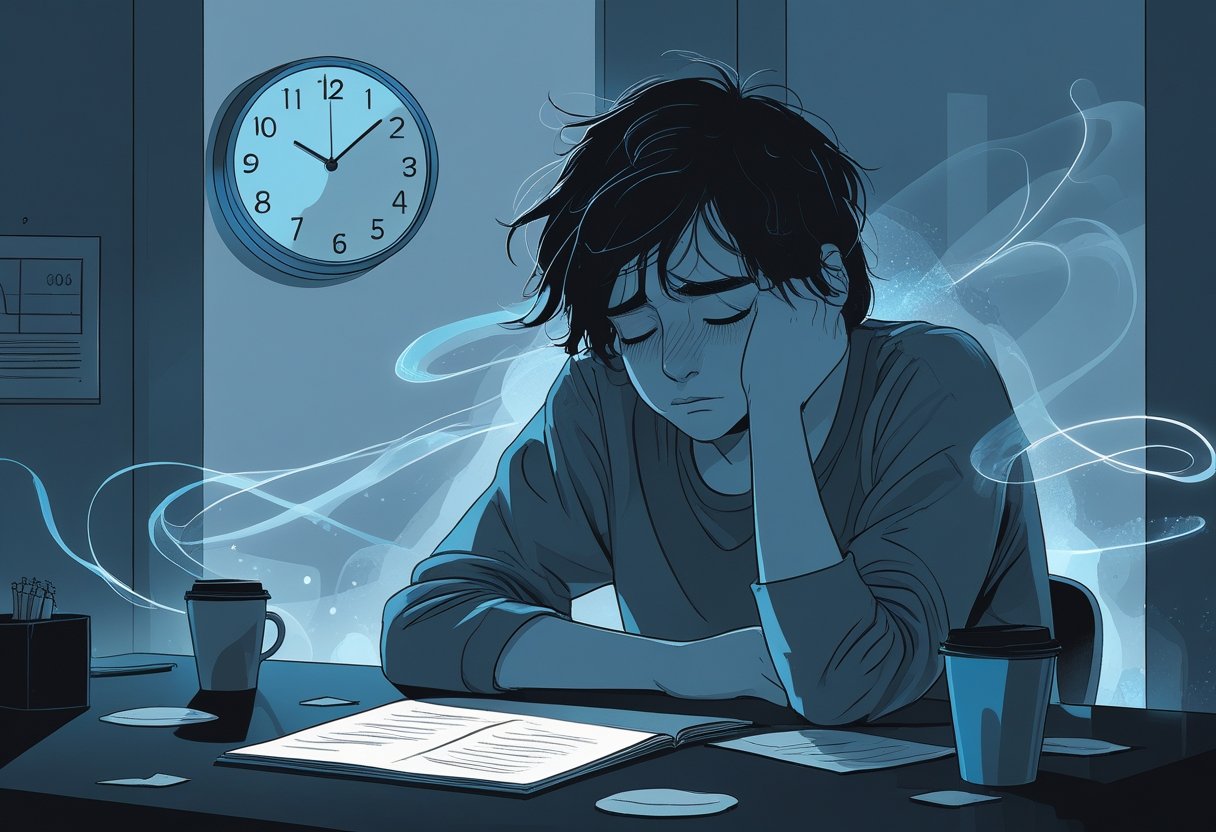
How to Assess If You’re Getting Enough Sleep
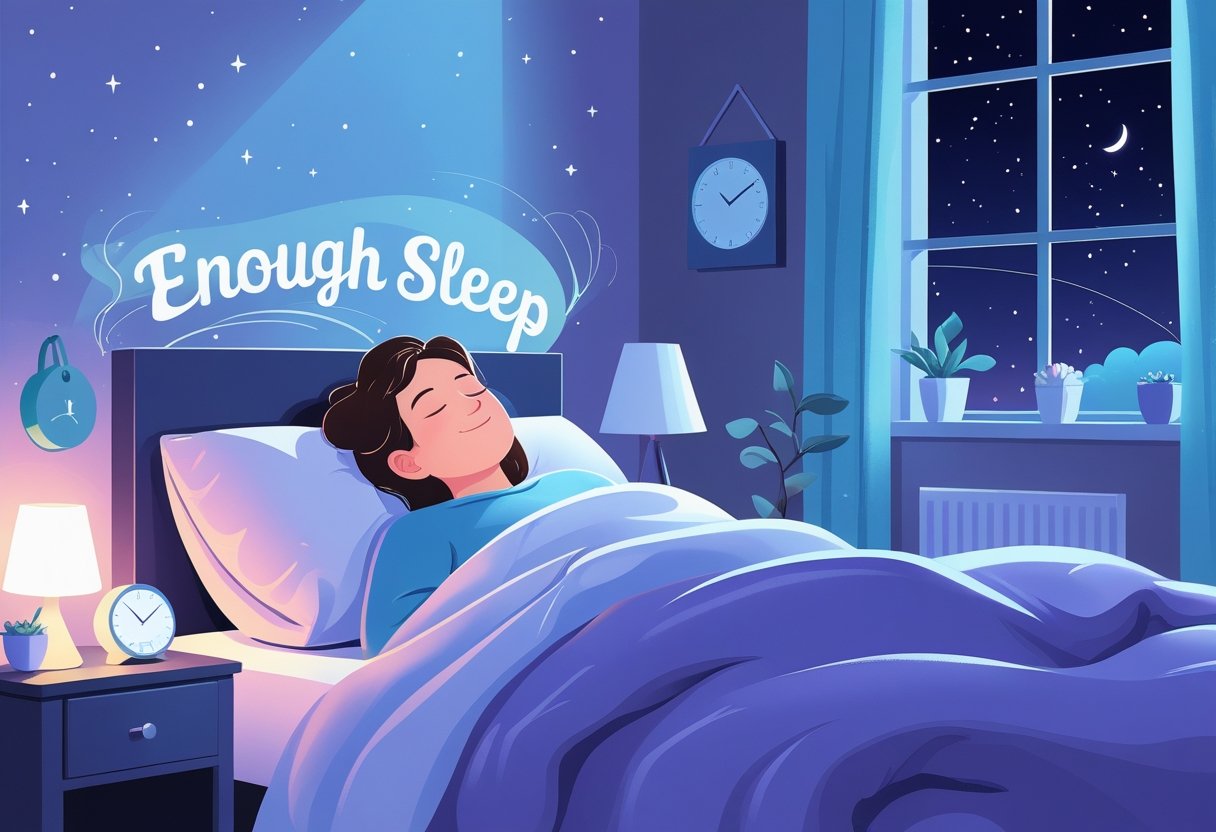
Knowing if you get enough sleep requires more than counting hours.
It involves paying attention to how you feel during the day, understanding typical adult sleep needs, and comparing those needs with your own sleep patterns.
Signs of Quality Sleep
Quality sleep means waking up refreshed without feeling overly tired throughout the day. A person who sleeps well usually falls asleep within 15 to 20 minutes. They seldom wake up during the night and fall back asleep easily when they do. Good sleep supports a stable mood, clear thinking, and consistent energy. If you feel alert and productive for most of the day without relying on caffeine or naps, it likely indicates that your sleep has been restful.
How Many Hours of Sleep Do People Need?
Most adults require 7 to 9 hours of sleep each night. Some may feel fine with as few as 6 hours, while others need up to 10 hours to function properly. Older adults, typically over age 65, usually need slightly less, around 7 to 8 hours.
These estimates come from research by health organizations and experts, showing that sleep needs vary based on age and individual differences.
How Many Hours Are You Supposed to Sleep?
The ideal number of sleep hours depends on your lifestyle, health, and current circumstances. For example, sleep-deprived individuals or those experiencing pregnancy may need additional rest. Most healthy adults should aim for at least 7 hours of sleep. Paying attention to how your body responds is crucial, if you feel tired often, increasing your sleep time may help.
Tracking your sleep cycles can reveal how much rest you need. The goal is to get enough uninterrupted sleep to feel alert and function well during the day.
Sleep Recommendations for Specific Populations
Different groups require varied amounts of sleep to stay healthy. Some adults, such as shift workers, face challenges that affect how much rest they obtain. Children and adolescents also have distinct sleep needs during their growth.
Sleep Needs for Shift Workers
Shift workers often experience disrupted sleep patterns because their work hours fall outside the typical daytime schedule. This situation makes it harder to achieve the recommended 7 to 9 hours of sleep adults require.
To improve sleep, shift workers should create a dark, quiet, and cool bedroom environment that mimics nighttime. Using blackout curtains and white noise machines offers support. Taking naps before a night shift may reduce tiredness but should remain limited to 20–30 minutes to avoid grogginess. Maintaining consistency in sleep timing, even on days off, supports the body’s internal clock.
How Much Sleep Should a 12 Year Old Get?
A 12-year-old typically needs about 9 to 12 hours of sleep each night for proper growth and brain development. This amount exceeds what adults require because their bodies and minds undergo rapid growth.
Getting sufficient sleep improves mood, focus, and school performance. A lack of sleep in this age group may cause behavior problems and difficulties in learning. Parents should encourage regular bedtimes and limit screen time before bed to help children fall asleep more easily.
How Much Sleep Do Kids Need?
Children’s sleep needs vary by age. School-age children (6–12 years) usually require 9 to 12 hours of sleep. Younger children may need even more rest to support growth and immune function.
Good sleep habits involve a consistent bedtime routine, avoiding caffeine, and limiting screen exposure before bedtime. Proper sleep enhances attention, memory, and physical health. Parents must monitor sleep patterns and address any issues, such as frequent waking or difficulty falling asleep.
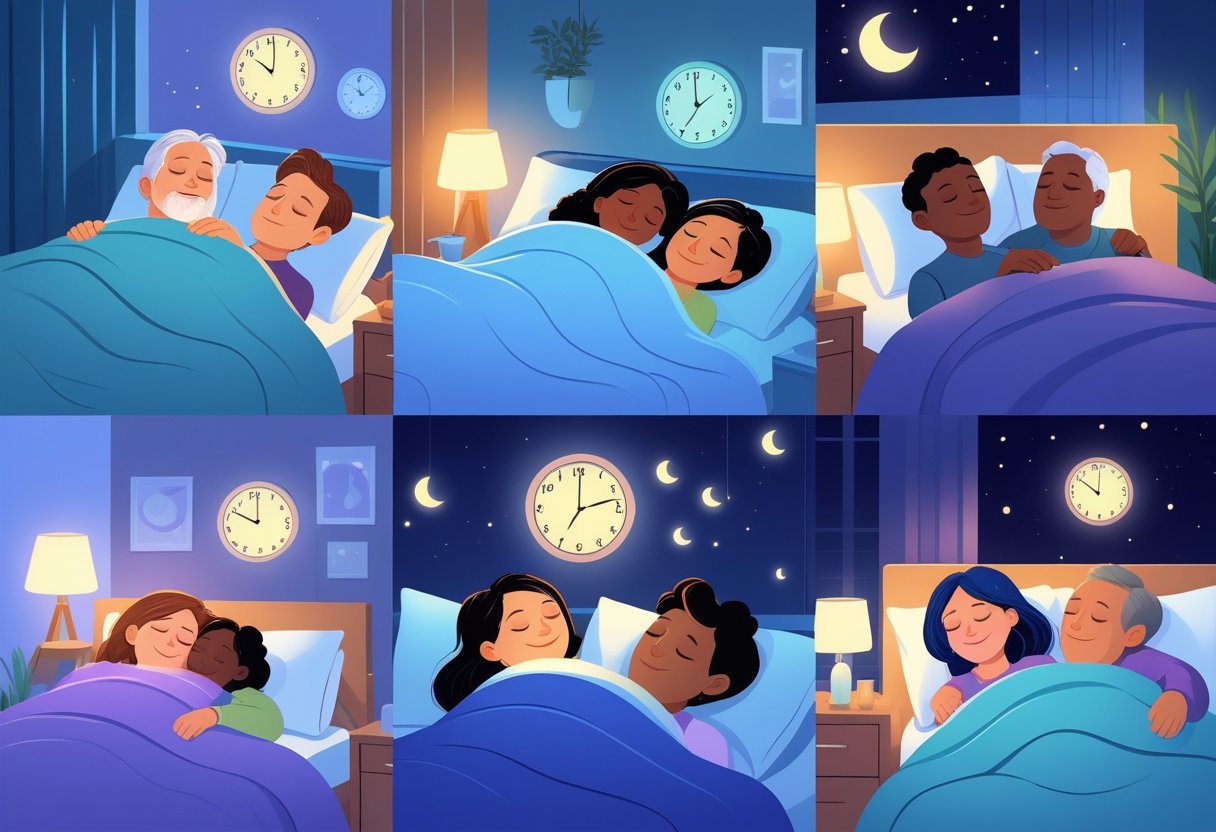
Improving Sleep Quality and Duration
Good sleep depends on both how long a person sleeps and how well they sleep. Creating the right habits and maintaining a consistent routine improves sleep quality and ensures the body receives enough rest.
Tips for Better Sleep
To get better sleep, create a calm and comfortable bedroom. Keeping the room cool, quiet, and dark supports easier sleep. Turn off electronic devices at least 30 minutes before bedtime to reduce blue light, which can interfere with the brain’s ability to fall asleep.
Avoid large meals, caffeine, and alcohol near bedtime because they disrupt sleep cycles or cause discomfort. Use relaxation techniques such as deep breathing or reading a book to prepare the mind and body for restful sleep.
Establishing a Healthy Sleep Schedule
Going to bed and waking up at the same time every day improves sleep consistency. This practice regulates the body’s internal clock, making it easier to fall asleep and wake up naturally. Even on weekends, staying close to the usual schedule prevents confusing the body. This regularity supports more restorative deep sleep stages, essential for feeling refreshed the next day.
Those who struggle with sleep should aim for at least seven hours each night, as this amount supports overall health and alertness.
Sleep Recommendations by Age Group
Sleep needs vary depending on age and life stage. Each age group requires a specific amount of sleep to maintain health and proper function. Recognizing these differences helps people get the rest they need.
Sleep Needs by Age
Sleep requirements shift as people age. Infants need the most sleep, typically between 12 and 16 hours each day. Teenagers need about 8 to 10 hours as their bodies and brains go through rapid development.
Most adults require 7 to 9 hours of sleep per night. Older adults often need 7 to 8 hours, though they tend to wake more frequently and experience lighter sleep. Genetics, lifestyle, and medical conditions may influence individual sleep needs slightly.
Recommended Sleep Hours by Age Group
- Newborns (0–3 months): 14–17 hours
- Infants (4–11 months): 12–15 hours
- Toddlers (1–2 years): 11–14 hours
- Preschoolers (3–5 years): 10–13 hours
- School-age children (6–13 years): 9–11 hours
- Teens (14–17 years): 8–10 hours
- Adults (18–64 years): 7–9 hours
- Older adults (65+): 7–8 hours
How Much Sleep Do Children and Teens Need?
Children and teens require more sleep than adults because their physical and cognitive development occurs more rapidly. School-age children benefit from 9 to 11 hours of sleep per night, which supports learning and focus.
Teens typically need 8 to 10 hours to manage mood, cognitive performance, and physical changes. However, many teens fall short of this range, which may impair memory and behavior. Sufficient sleep enhances emotional stability and overall health during these stages.
Average Sleep Time by Age
Average sleep duration often falls below the recommended levels across various age groups. Many adults sleep about 6.8 to 7.5 hours each night—slightly under the ideal range yet common.
Older adults usually average 6 to 7 hours due to more frequent awakenings and lighter sleep patterns. Children and teens who reach recommended sleep durations tend to perform better mentally and maintain stronger overall health.
Monitoring average sleep time alongside recommended guidelines can reveal whether adjustments are needed to improve rest and well-being.
Mattress Quality and Its Impact on Adult Sleep Duration
The quality of a mattress affects how long and how well adults sleep. A mattress that fails to provide enough support or comfort causes discomfort, which leads to frequent waking or shorter sleep duration. Poor mattresses link to aches and pains, often causing people to wake up during the night. These interruptions reduce total sleep hours and lower sleep quality.
Choosing a mattress with the right firmness and pressure relief improves sleep duration. For example, studies show that medium-firm mattresses with pressure-relieving features help people sleep longer and feel more rested the next day.
A simple way to assess mattress quality involves checking for signs such as sagging, lumps, or worn-out materials. Once a mattress shows these issues, it may no longer support healthy sleep.
Benefits of a good mattress include:
- Increased sleep duration
- Reduced nighttime awakenings
- Less morning stiffness and pain
- Better mood and daytime energy
Adults should aim for 7-9 hours of quality sleep. Selecting the right mattress supports this goal by reducing physical discomfort and enhancing restfulness.
For those seeking a mattress that combines comfort, support, and eco-friendly materials, the Brooklyn Bedding EcoSleep features a natural latex hybrid design with organic cotton and wool layers. It provides excellent pressure relief and spinal support, which helps improve sleep quality while using sustainable materials.
Experts recommend adults get 7-9 hours of quality sleep each night to maintain overall health and well-being, so choosing a mattress like the Brooklyn Bedding EcoSleep can help achieve that goal. The mattress comes with a 120-night trial and a limited lifetime warranty, which makes it a reliable choice for long-term restful sleep.

Frequently Asked Questions
Adults generally need between 7 and 9 hours of sleep each night. Sleep patterns and needs change depending on age, sex, and individual health.

